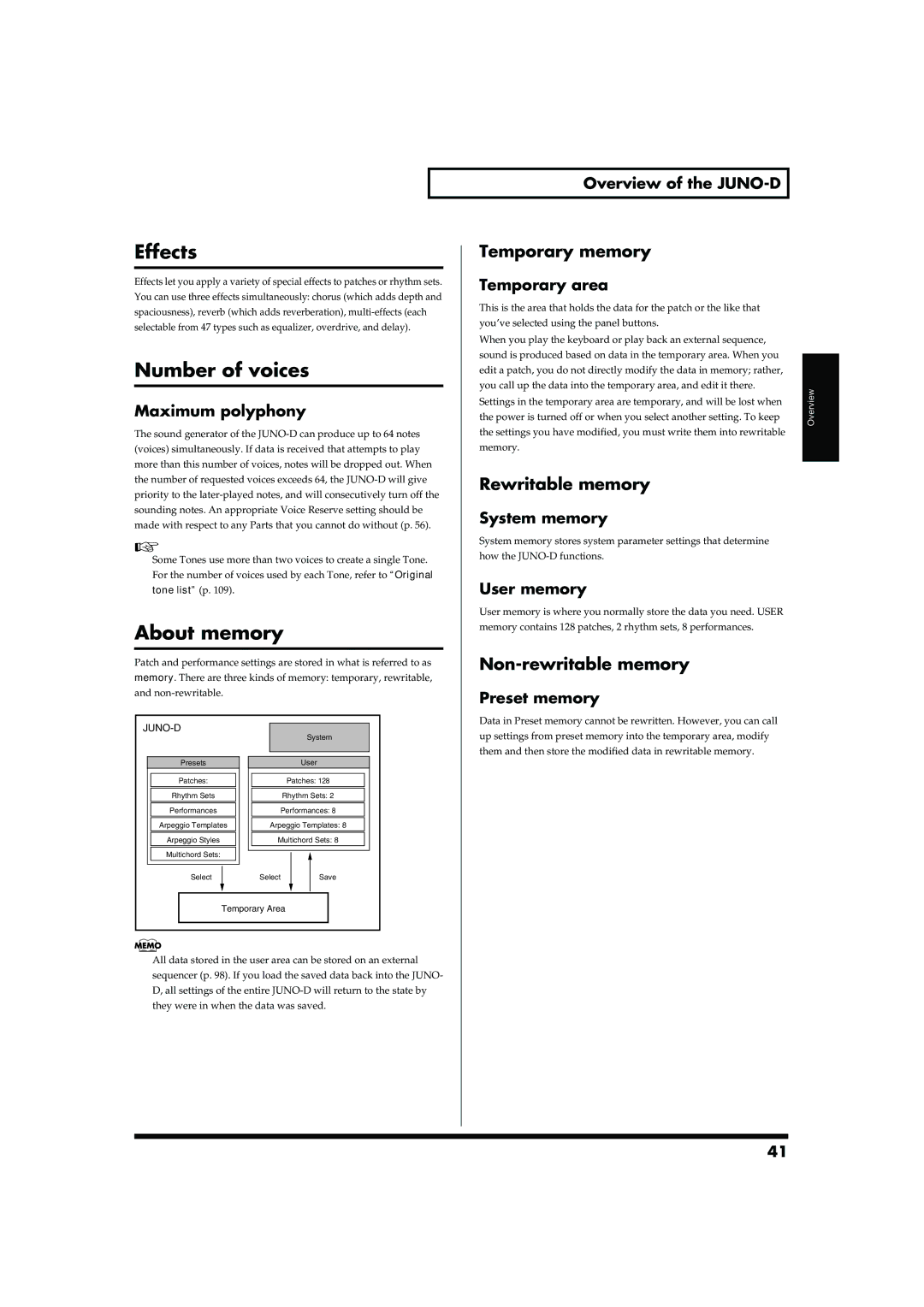
Effects
Effects let you apply a variety of special effects to patches or rhythm sets. You can use three effects simultaneously: chorus (which adds depth and spaciousness), reverb (which adds reverberation),
Number of voices
Maximum polyphony
The sound generator of the
Some Tones use more than two voices to create a single Tone. For the number of voices used by each Tone, refer to “Original tone list” (p. 109).
About memory
Patch and performance settings are stored in what is referred to as memory. There are three kinds of memory: temporary, rewritable, and
|
|
|
|
| System |
|
| |
Presets |
| User |
Patches: |
| Patches: 128 |
Rhythm Sets | Rhythm Sets: 2 | |
Performances | Performances: 8 | |
Arpeggio Templates | Arpeggio Templates: 8 | |
Arpeggio Styles | Multichord Sets: 8 | |
Multichord Sets: |
|
|
Select | Select | Save |
Temporary Area |
| |
All data stored in the user area can be stored on an external sequencer (p. 98). If you load the saved data back into the JUNO- D, all settings of the entire
Overview of the
Temporary memory |
| |
Temporary area |
| |
This is the area that holds the data for the patch or the like that |
| |
you’ve selected using the panel buttons. |
| |
When you play the keyboard or play back an external sequence, |
| |
sound is produced based on data in the temporary area. When you |
| |
| ||
edit a patch, you do not directly modify the data in memory; rather, |
| |
you call up the data into the temporary area, and edit it there. | Overview | |
Settings in the temporary area are temporary, and will be lost when | ||
| ||
the power is turned off or when you select another setting. To keep |
| |
the settings you have modified, you must write them into rewritable |
| |
memory. |
| |
|
| |
Rewritable memory |
| |
System memory |
| |
System memory stores system parameter settings that determine |
| |
how the |
| |
User memory |
| |
User memory is where you normally store the data you need. USER |
| |
memory contains 128 patches, 2 rhythm sets, 8 performances. |
| |
|
| |
Preset memory |
| |
Data in Preset memory cannot be rewritten. However, you can call |
| |
up settings from preset memory into the temporary area, modify |
| |
them and then store the modified data in rewritable memory. |
|
41
